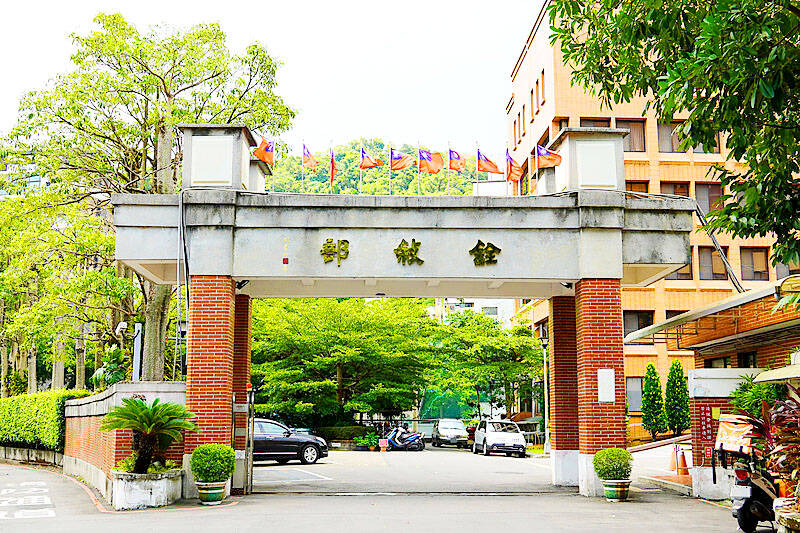FINANCES:
The KMT plan to halt pension cuts could bankrupt the pension fund years earlier, undermining intergenerational fairness, a Ministry of Civil Service report said
By Chen Fu-yu / Staff reporter
The Chinese Nationalist Party (KMT) caucus’ proposal to amend the law to halt pension cuts for civil servants, teachers and military personnel could accelerate the depletion of the Public Service Pension Fund by four to five years, a Ministry of Civil Service report said.
Legislative Speaker Han Kuo-yu (韓國瑜) on Aug. 14 said that the Act Governing Civil Servants’ Retirement, Discharge and Pensions (公務人員退休資遣撫卹法) should be amended, adding that changes could begin as soon as after Saturday’s recall and referendum.
In a written report to the Legislative Yuan, the ministry said that the fund already faces a severe imbalance between revenue and expenditure, with a 2013 actuarial assessment projecting that it would run dry by 2030.

Photo courtesy of the Ministry of Civil Service
The National Pension Reform Committee, set up in 2016, aimed to extend the fund’s sustainability for at least a generation — until about 2051. Reforms implemented in 2018 included gradually lowering the maximum income replacement ratio each year and raising the pensionable age to 65, it said.
However, if the KMT halts the annual reduction in replacement rates this year, the fund would be exhausted four to five years earlier, it said.
If civil servants hired after July 1, 2023, are shifted to an “individual” system, the depletion date would move up to 2046. Together, these changes would cause the fund to run out by 2042, the ministry said.
The report outlined three reasons the pension fund would be depleted earlier: First, the annual reduction in the income replacement ratio between 2018 and 2023 had saved the fund up to NT$277.4 billion (US$9.07 billion). If this policy is halted, those savings would no longer accrue, while an additional NT$29.4 billion would be required to fund individual pension accounts.
Second, with less money remaining in the fund for investment, investment income would inevitably decline, it said, adding that after the 2018 reforms, the fund’s annual income and expenditure had become more balanced, with the income-to-expenditure ratio at 145.3 percent in 2019. However, this ratio had dropped to 98.6 percent by 2023 and would deteriorate more rapidly if the reforms were reversed.
Finally, the report said that halting the annual reduction in the replacement ratio would create a financial shortfall. If that shortfall were covered by government subsidies, it would impose an additional burden on taxpayers, forcing younger generations to shoulder the cost of retirees’ income, which would undermine the reform’s goal of ensuring intergenerational justice, it said.
A previous ministry report showed that 70 percent of retired civil servants received an average income of more than NT$50,000 per month last year, while those with higher salary grades collected between NT$60,000 and NT$80,000.
As their monthly retirement income already exceeds the average salary in the private sector and amounts to about 80 percent of the average salary of active civil servants, halting the annual reduction in the income replacement ratio would raise their benefits even further, the ministry said.
Democratic Progressive Party caucus chief executive Rosalia Wu (吳思瑤) said that looking after civil servants should include protecting the rights of those in service and of future teachers, military personnel and civil servants.
However, the KMT only cares about retired personnel, while sacrificing those who are still working as well as future generations, she said.
The KMT’s proposal to stop pension cuts would undermine state finances, erode intergenerational justice, and push the pension fund toward bankruptcy, leaving neither the government nor the legislature room for compromise, she added.
KMT caucus deputy secretary-general Lo Chih-chiang (羅智強) said that the party’s position on amending the act is clear: The government should prioritize caring for civil servants, rather than fueling social divisions or stigmatizing retirees.
Reforms should neither suppress nor divide, he said, adding that only by respecting the contributions of civil servants, teachers and military personnel can the system achieve long-term stability, while also reflecting fairness to the public and to grassroots civil servants.
Additional reporting by Lin Che-yuan and Lin Hsin-han
